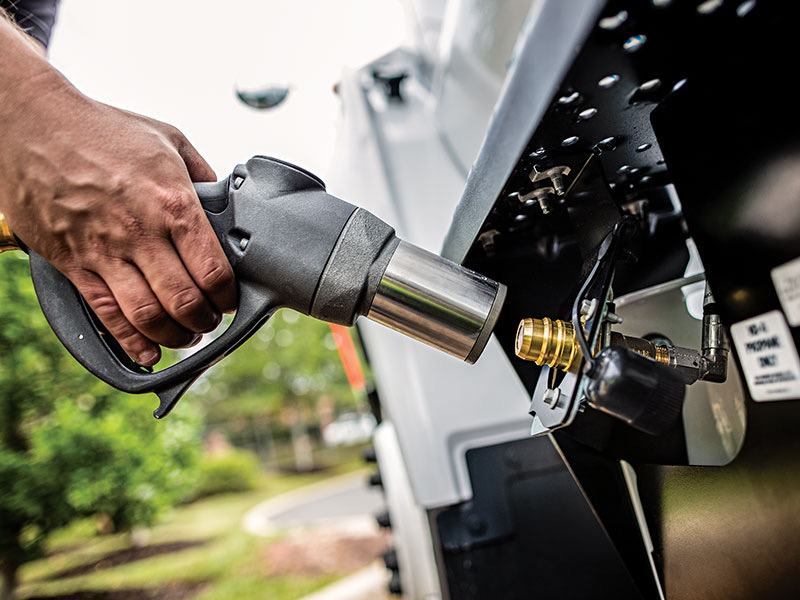What is Autogas?
Also known as liquefied petroleum gas (LPG), autogas is the common name for when propane is used as a fuel for an on-road vehicle. Autogas is composed of three parts carbon and eight parts hydrogen making it a highly efficient, low carbon producing fuel.

Where does it come from and how does it work?
Over ninety-nine percent of autogas is produced in America, increasing energy security by reducing America’s dependence on foreign oil. Autogas comes from two domestic processes: it is a by-product of both natural gas processing and the crude oil refining process. Propane is stored as a liquid in a relatively low-pressure tank and travels along a fuel line into the engine compartment. The supply of propane to the engine is controlled by a regulator or vaporizer, which converts the liquid propane to a vapor. The vapor is fed to a mixer located near the intake manifold, where it is metered and mixed with filtered air before being drawn into the combustion chamber where it’s burned to produce power.
Is it an alternative fuel?
Autogas is an approved, alternative clean fuel listed in the 1990 Clean Air Act and National Energy Policy act of 1992. In fact, autogas burns cleaner than gasoline, is largely produced in the United States, and lowers fuel costs when compared to traditional gasoline and diesel.
Is using autogas in my vehicle safe?
Made from high carbon steel, autogas vehicle tanks are 20 times more puncture resistant than conventional plastic gasoline tanks. Autogas is nontoxic, nonpoisonous, not a groundwater contaminant, and has the lowest flammability range of any alternative fuel including gasoline. Autogas is safe and meets the same standards for safety as conventionally fueled vehicles.
Is it environmentally friendly?
One of the best reasons to switch to autogas is that it is an environmentally friendly fuel. Autogas is a cleaner-burning fuel that provides less harmful emissions than gasoline. Autogas can reduce carbon monoxide emissions by up to 20 percent, nitrous oxide emissions by up to 40 percent, and carbon dioxide emissions by as much as 18 percent.
What are the benefits?
Autogas has a number of benefits in several areas such as:
- It is less expensive than gasoline or diesel.
- It produces fewer harmful greenhouse gas emissions than gasoline or diesel.
- Drivers report that compared to conventional gasoline, autogas provides superior performance and equivalent power.
- Over a vehicle’s lifetime, autogas provides more vehicle uptime because it’s a clean-burning alternative fuel that doesn’t require the same expensive repairs and replacement parts compared to other fuels such as diesel.
- It is domestically produced, increasing America’s energy security.
- Refueling infrastructure can be customized to fit each autogas fleet’s individual needs.
Want to learn more about what Alliance AutoGas can do for your fleet? Contact us today!
